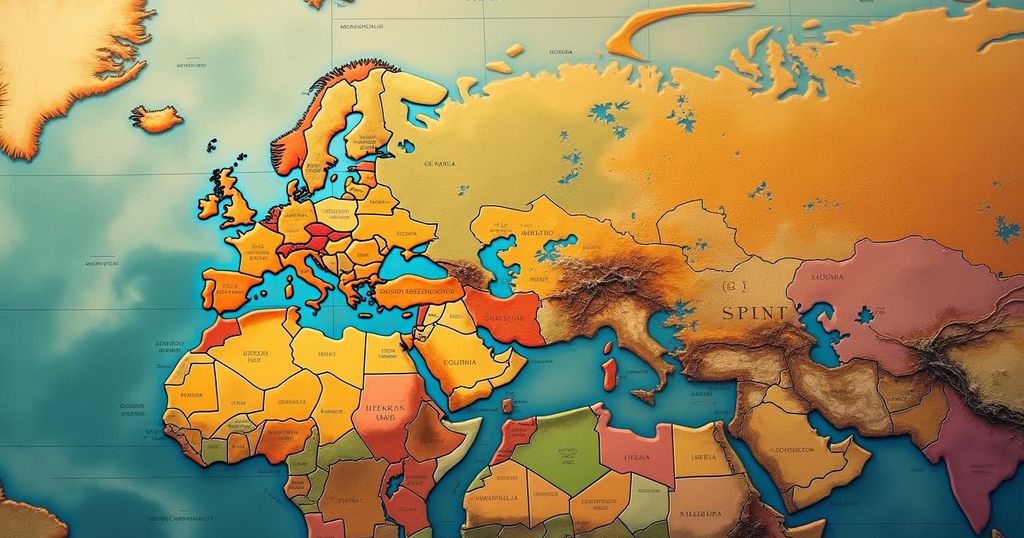The Journey of Mozambique: From Colonialism to Independence and Civil Conflict
Mozambique’s journey from colonialism to independence is marked by the oppressive New State regime, the formation of Frelimo and its armed struggle for liberation, and the eventual establishment of a one-party state, followed by civil unrest instigated by Renamo. The nation achieved independence in 1975, but faced economic difficulties and conflict until a peace agreement was reached in 1992, leading to political reforms.
The history of Mozambique reflects a tumultuous journey from colonial oppression to the establishment of independence and experimentation with governance. The 1926 coup in Portugal marked the rise of the New State regime, which maintained and intensified prior abuses against the local populace, while also consolidating economic power within a few Portuguese settlers. Although this regime sought to unify and develop administrative and educational frameworks, these efforts predominantly catered to the settler community, disregarding the needs and rights of the African population. In the 1950s, colonial investment strategies shifted, leading to the development of Mozambique’s infrastructure, largely benefiting Portuguese settlers amidst stringent controls imposed on the African population. This discontent paved the way for the emergence of African leadership capable of galvanizing resistance against colonial rule. The formation of the Mozambique Liberation Front (Frelimo) in 1962, in response to the Portuguese government’s repressive measures, represented a significant turning point. Frelimo adopted an armed struggle against the colonial authorities starting in 1964, encountering increasingly desperate military opposition from Portugal. Following relative military success, a coup in Portugal in April 1974 ignited the pathway to independence for Mozambique. Subsequently, on June 25, 1975, the nation became an independent one-party state under Frelimo, with Samora Machel at the helm. Frelimo’s alignment with other African liberation movements tested the new government’s economic stability, leading to internal challenges and a civil war initiated by the Mozambique National Resistance (Renamo). Despite initial advancements in social services, the country faced economic sabotage and violence, leading to strained resources and infrastructure. The conflict persisted until 1992, when Frelimo and Renamo reached a peace agreement that initiated a shift toward multi-party governance and constitutional amendments, marking Mozambique’s complex post-colonial narrative.
The Portuguese colonial rule in Mozambique was characterized by significant oppression and exploitation. The 1926 coup in Portugal resulted in the establishment of the New State, which perpetuated colonial abuses while concentrating economic gain among Portuguese settlers. The subsequent development plans initiated in the early 1950s aimed to enhance Mozambique’s economic landscape, yet they favored settler interests over African aspirations. The rise of nationalist sentiment among the African populace and the formation of Frelimo in the 1960s were critical developments that led to armed resistance and eventual independence from colonial rule. Following independence, Mozambique faced a decade of turmoil marked by civil conflict, significantly influenced by external political dynamics in the southern African region.
Mozambique’s transition from a Portuguese colony to an independent nation illustrates the complexities of colonial legacies, national identity, and governance. The establishment of Frelimo, while initially promising social and economic reforms, was challenged by significant resistance and internal strife, culminating in a civil war that devastated infrastructure and hampered development. The eventual peace agreement and shift towards a multi-party political landscape signify a critical moment in Mozambique’s ongoing quest for stability and progress.
Original Source: www.britannica.com




Post Comment